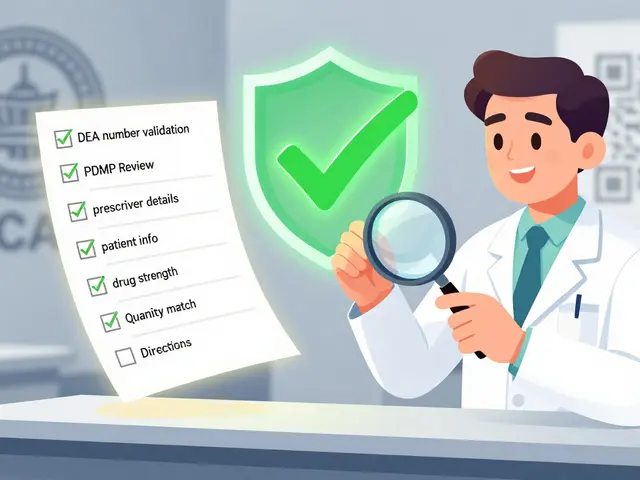Not all natural supplements are harmless — some can be as risky as prescription drugs.
This tag collects straightforward, practical articles about herbal and dietary supplements: what they do, who might benefit, and how to avoid harm.
I’ll cut to the chase: natural doesn't mean safe. Some herbs interact with meds, some have contaminants, and dosing can vary wildly. Use this page to find reviews, safety guides, and buying tips from TheOnlineDrugstore.com so you can make smart choices without the hype.
Where to start Check the active ingredient and do a quick search for interactions with your current medicines. If you take blood thinners, antidepressants, diabetes meds, or immunosuppressants, pause before trying anything new. A single paragraph on a product page is not enough to decide.
Quick safety checklist
Look for third‑party testing: USP, NSF, or ConsumerLab seals mean the bottle was checked for purity and potency.
Avoid proprietary blends that hide ingredient amounts; prefer products that list milligrams.
Check for contaminants: heavy metals or undeclared drugs have appeared in some supplements.
Start low and slow: try a low dose for a few days and watch for side effects.
Talk to a pharmacist or your clinician, especially if pregnant, breastfeeding, elderly, or on multiple drugs.
Popular natural supplements and what to expect
Sarsaparilla, goji, and agrimony are common herbal options. Sarsaparilla historically was used for joint and skin complaints; modern evidence is limited but some people report mild benefits. Goji berries are nutrient‑dense and safe as food; concentrated extracts can have stronger effects. Agrimony is used in teas and supplements for mild digestive or skin support, but solid clinical trials are scarce.
Supplements with clearer evidence include fish oil for certain heart markers and probiotics for some digestive issues. Even these can interact with meds or have side effects at high doses, so treat them like medicines.
Practical buying tips Buy from reputable sellers. Check product reviews, but also check whether the company shares batch test or certificate of analysis (COA). Look for clear labeling, expiration date, and contact info. When buying online, prefer vendors who accept returns and list manufacturing details.
Watch for red flags Big claims like “cures cancer” or “instant weight loss” are fake. Extremely low prices can mean poor quality or counterfeit products. If a seller recommends stopping your prescription medicine without a doctor, walk away.
If you have questions about a specific product or need a deeper dive, the linked articles on this tag dig into individual supplements, safety, and where to buy responsibly. Use them as a starting point, not the last word.
Store supplements in a cool, dry place and keep them out of reach of kids. Note batch numbers; keep receipts in case you need report adverse effects to your provider or regulators like FDA MedWatch. If you suspect a reaction, stop the product and get medical advice. Want examples and brand checks? Browse our tag posts for reviews on sarsaparilla, goji, agrimony and buying tips for online pharmacies to keep shopping safe.





